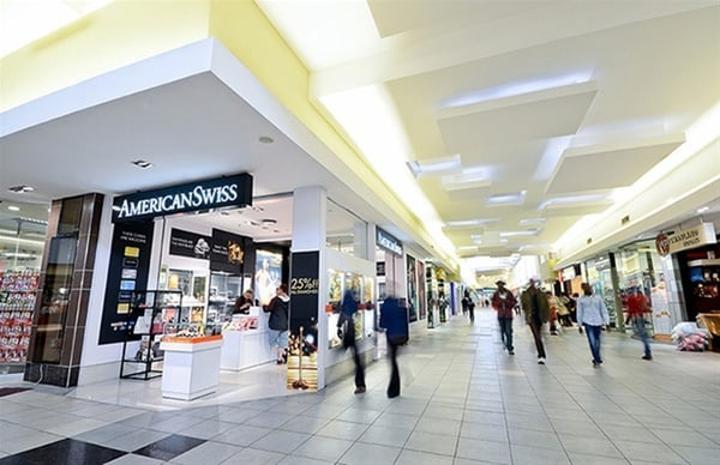Africa-Press – South-Africa. Retail-focused landlord Resilient said on Tuesday it has cut its interim distribution by double-digits after a hit from higher interest rates and a lower contribution from investees, but it’s still pressing ahead with an about R1 billion solar spend as it looks to insulate its SA malls from load shedding.
Resilient said on Tuesday its distributable earnings fell about 16% to R681 million in the six months to end-June, hit by a lower contribution from UK mall owner Hammerson, and it has now sold most of its direct stake in that business as looks to fund its solar rollout.
Resilient, valued at over R15 billion on the JSE, held about 4% of Hammerson as of 2022, but also owned almost 31% of Lighthouse Properties, which in turn owned just over 22% of Hammerson.
The company has previously expressed surprise at Hammerson’s decision not to declare a dividend in its second half of 2022, saying on Tuesday Hammerson’s dividend in respect of the first half of 2023 was based on a payout ratio of 65% of its adjusted earnings.
“This is below industry best practice of at least 85% and impacted Resilient’s distribution on its holding as well as through its investment in Lighthouse.”
Resilient also announced on Tuesday that as of 11 August, it had disposed of about 162.4 million shares in Hammerson for about R982 million, having held roughly 198 million shares at the end of December.
The group said while Hammerson’s recent results were well-received by the market, its priorities were on its energy initiatives and its balance sheet.
Solar developments
Resilient’s strategy is to invest in dominant retail centres with a minimum of three anchor tenants, and let predominantly to national retailers. Its SA portfolio currently consists of 27 retail centres, valued at over R25 billion as of the end of December, while it also has property interests in Nigeria and France.
It said on Tuesday it has invested R564 million in solar and battery installations, with a further R463 million in spending approved, and it currently generates just over 20% of its electricity from solar, while being on track to increase this to 27.7% by year end.
Resilient, however said, “local authorities have been slow in implementing the amended regulations relating to solar installations announced by the President [Cyril Ramaphosa]”.
Approvals have, however, recently been received from the Mbombela Local Authority in Mpumalanga to expand the solar installation at I’langa Mall as well as from the Madibeng Municipality in the North West for the increase of the installation at its Brits Mall.
Approval has also been received from the National Energy Regulator of South Africa to expand the solar installations at Galleria Mall and Arbour Crossing in KwaZulu-Natal. “Tshwane Municipality continues to delay approvals affecting the planned additional installations at Mams Mall, The Grove Mall and Soshanguve Crossing,” it said.
Resilient also announced on Tuesday that CEO Des de Beer, who founded the group in 2002, will retire as the CEO at the end of 2023, but will remain on the board as a non-independent non-executive director.
Executive director Johann Kriek, who joined the board in 2004, has been appointed as CEO elect. Kriek has been in the industry for almost four decades with an emphasis on the development and redevelopment of underperforming shopping centres, Resilient has said.
Shares in Resilient, which released its results after market close, had fallen 1.6% on Tuesday and have lost just over a quarter of their value over the past one year.
For More News And Analysis About South-Africa Follow Africa-Press






